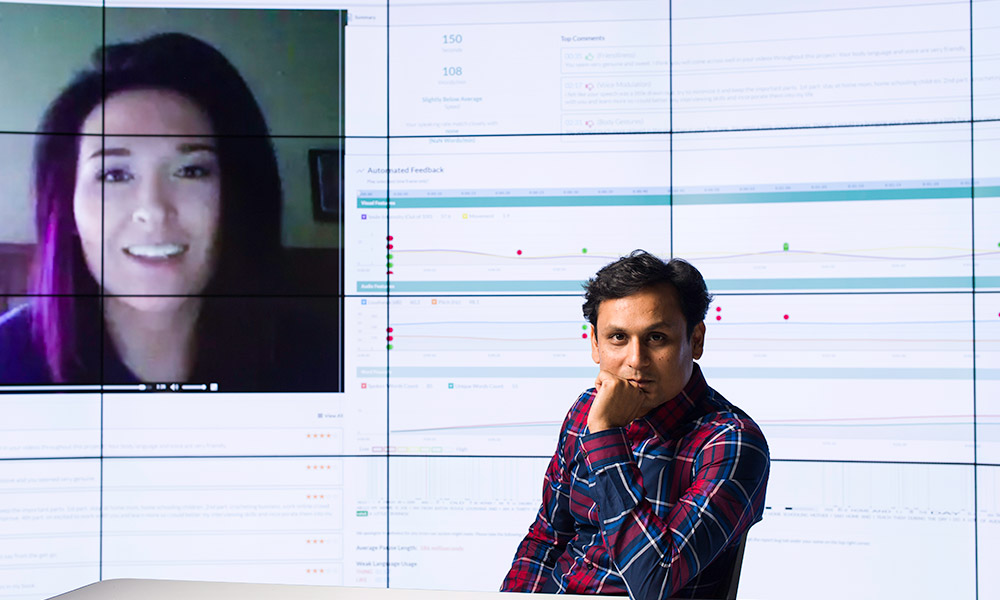Ehsan Hoque, a computer scientist at the University of Rochester, has been recognized as a leading innovator in human-computer interaction with a World Technology Award from the World Technology Network.
“When I saw the list of the other finalists in the IT software category, I thought my name was there by mistake. These are people I have admired for many years,” said Hoque, who in August was named one of “35 innovators under 35” by the editors of MIT Technology Review.
“But I am very grateful to see the University of Rochester being highlighted.”
Hoque, an assistant professor of computer science and assistant director for research outreach at the Goergen Institute for Data Science, applies a computational lens to understand and model the ambiguity that language, facial expressions, gestures, and intonation introduce in human communication.
He has developed a system that allows individuals to practice speaking and social skills and receive feedback in a repeatable, objective, and respectful way. He has also developed systems that help musicians practice singing vowels and provide live feedback to public speakers while they’re engaged with audiences.
“Ehsan’s research strikes at the core of what has remained elusive so far in human-machine interaction – that of emotion detection,” said Sandhya Dwarkadas, chair of the Department of Computer Science. “We’re thrilled to see the recognition for Ehsan’s pioneering research in this area and honored that he is an active member of our faculty. ”
The IT Software category is one of 30 technology categories in which WTN honors individuals and organizations. Hoque was among 48 nominees in IT Software, eight of whom were finalists.
By winning, Hoque joins WTN’s “curated membership community” of more than 1,000 scientists, innovators, financiers, and corporate and policy leaders, and more than 200 businesses and other organizations. The World Technology Awards have been presented since 2000 to recognize “innovative and impactful work with the greatest likely long-term significance in the fields of science, technology & other related disciplines.”
Other winners this year include U.S. Secretary of State John Kerry (Policy) and Jeff Bezos, CEO of Amazon (Space), among many.
Past winners have included primatologist Jane Goodall; Oculus founder Palmer Luckey; Alan J. Heeger, a Nobel laureate in chemistry; Mark Zuckerberg, cofounder of Facebook; Al Gore, former U.S. vice president; and Wikileaks founder Julian Paul Assange. Organizations receiving awards have included IBM, the NASA Jet Propulsion Laboratory, YouTube, Skype, Wikimedia, the Woods Hole Oceanographic Institution and Scripps Institution of Oceanography, Facebook, Apple, and Google.
Hoque tells the students participating in his human-computer interaction research that it is important to not only publish papers, but to also “produce a technical prototype that you can deploy or give others to use. As others use it, we get more data and insights back, which takes our research to new heights.”
It may also help explain the attention his research is getting. “When you deploy your work in the real world, you have more visibility and impact,” Hoque said.




